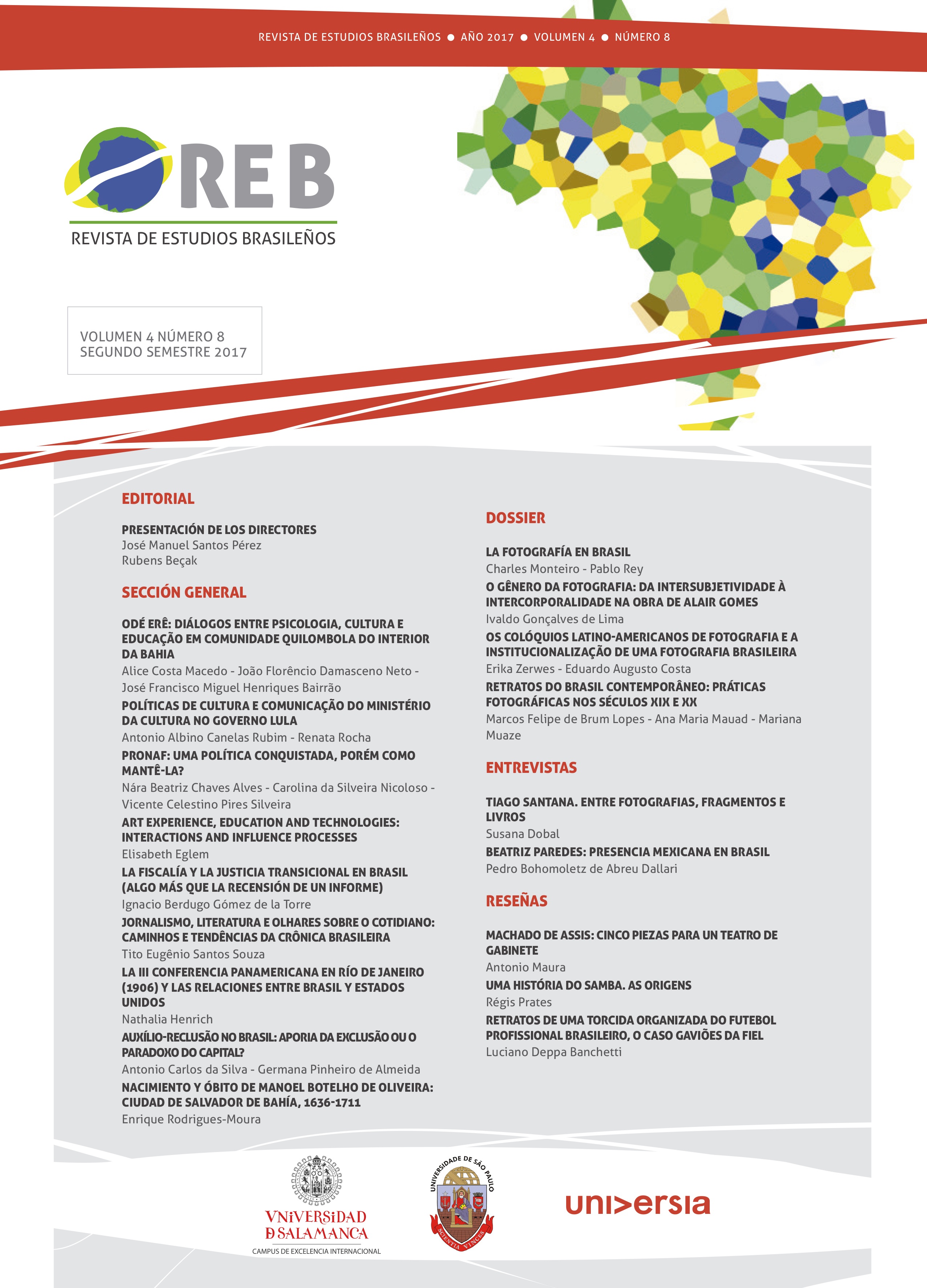Art experience, education and technologies: interactions and influence processes
DOI:
https://doi.org/10.3232/REB.2017.V4.N8.3066Keywords:
Art experience, education, technologies, interactivity, ethnography.Abstract
This research is focused on the role of technologies in the educational dimension of the art experience, starting from questioning the links between educational experience in general and art experience in particular. By technologies we mean “new technologies” based on the Internet and related communication devices such as smart phones or tablets, and more traditional devices such as video, computers and television. This paper was the result of the post-doctoral research about new media and art reception carried out at the Escola Comunicações e Artes (School of Arts and Communication, ECA, USP). The methodology is ethnographic, consisting in 10 public and 30 professional interviews as well as participant observations, photographs and a research diary. The information collected was submitted to a global content analysis based on interview coding and a semantic study, followed by a photo analysis and a study of the observations and diary notes. After a theoretical review of the concept of experience – interpretations, forms of art experience, and a reflection on the educational approach of arts –, the results of the field research analysis dealing with some aspects of the concept of arts education are introduced. Finally, the discussion is a dialog between theoretical elements and the information gathered from the field, from which a few conclusions regarding the relationship between education, the art experience and the use of technology are drawn.Downloads
Download data is not yet available.
Downloads
Published
2017-10-05
Issue
Section
General Section
How to Cite
Art experience, education and technologies: interactions and influence processes. (2017). Revista De Estudios Brasileños, 4(8). https://doi.org/10.3232/REB.2017.V4.N8.3066


